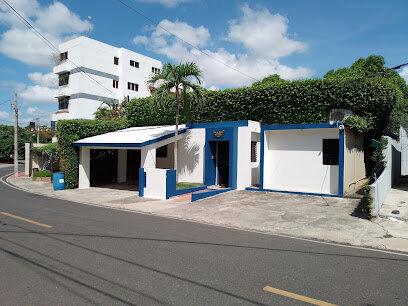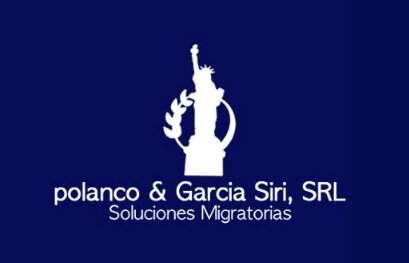Best Criminal Litigation Lawyers in Santiago de los Caballeros
Share your needs with us, get contacted by law firms.
Free. Takes 2 min.
List of the best lawyers in Santiago de los Caballeros, Dominican Republic
About Criminal Litigation Law in Santiago de los Caballeros, Dominican Republic
Criminal litigation in Santiago de los Caballeros, Dominican Republic, refers to the legal process by which individuals accused of committing a crime are prosecuted, defended, and judged before the courts. This process is governed by the Dominican Penal Code, as well as various procedural laws that ensure due process and protect the rights of both victims and accused parties. In Santiago de los Caballeros, one of the country's largest cities, the justice system strives to balance robust law enforcement with respect for individual rights, making it essential for those involved in criminal cases to understand their legal standing and options.
Why You May Need a Lawyer
Criminal litigation can be complex, intimidating, and have serious consequences. Common situations where legal help is necessary include:
- Being accused of a crime or facing criminal charges.
- Being arrested or detained by the police for investigation.
- Receiving a summons to appear before a criminal court.
- Being the victim of a criminal act and seeking justice or compensation.
- Needing advice on plea bargaining or negotiating with prosecutors.
- Challenging evidence or police conduct during an investigation.
- Facing trial for serious offenses with potential imprisonment.
An experienced criminal litigation lawyer can help you navigate the local legal system, protect your rights, and provide representation to achieve the best possible outcome for your situation.
Local Laws Overview
Criminal law in Santiago de los Caballeros is based on Dominican national law, primarily the Penal Code and the Code of Criminal Procedure. Some key aspects relevant to criminal litigation include:
- Individuals are presumed innocent until proven guilty by a competent court.
- Detention must be conducted according to legal procedures. The accused has the right to be informed of the charges and to be represented by legal counsel.
- The criminal process involves several stages: investigation, accusation, preliminary hearing, trial, and potential appeal.
- Certain crimes, such as theft, fraud, drug offenses, and violent crimes, carry severe penalties including imprisonment and significant fines.
- Victims of crimes can participate actively in the proceedings and seek restitution or damages through civil action.
- Alternative measures, such as plea agreements or restorative justice, may be available depending on the nature of the offense and the parties involved.
Understanding these fundamental aspects is crucial, as procedures and rights may vary from other legal systems and can directly affect the outcomes of a case.
Frequently Asked Questions
What should I do if I am arrested in Santiago de los Caballeros?
Remain calm, do not resist, and remember your right to remain silent. Request to speak with a criminal defense lawyer as soon as possible and avoid making statements without legal counsel present.
How long can the police detain me without formal charges?
Under Dominican law, you can generally be held for up to 48 hours before a judge must review your case and decide on the legality of your detention.
What rights do I have when accused of a crime?
You have the right to legal representation, to be informed of the charges against you, to remain silent, to a fair and public trial, and to appeal any conviction.
Can I get out on bail while awaiting trial?
Yes, in many cases. The court will consider the seriousness of the offense, your criminal history, and flight risk before deciding on bail or releasing you on your own recognizance.
What happens if I cannot afford a private lawyer?
You have the right to a public defender provided by the state if you cannot afford to hire a private criminal defense lawyer.
As a victim of crime, do I need a lawyer?
While not mandatory, having a lawyer can help you understand your rights, participate in the proceedings, and pursue compensation or restitution.
What is the process of a criminal trial?
The trial process includes investigation, indictment, preliminary hearing, the trial itself (with both prosecution and defense presenting evidence), and possible appeals if necessary.
How is evidence handled in criminal cases?
Evidence must be lawfully obtained and is subject to examination and challenge by both parties. Illegally obtained evidence may be excluded from the trial.
What penalties could I face if convicted?
Penalties depend on the offense committed and range from fines and community service to lengthy imprisonment. Criminal records may also impact future opportunities.
Can I appeal a criminal conviction in Santiago de los Caballeros?
Yes. You have the legal right to appeal a conviction if you believe errors occurred during your trial or if new evidence emerges that could affect the outcome.
Additional Resources
If you are seeking legal advice or more information regarding criminal litigation in Santiago de los Caballeros, the following resources may be helpful:
- The Public Ministry (Ministerio Público) - Handles prosecutions and offers victim assistance.
- Defensoría Pública (Public Defender's Office) - Provides legal defense for individuals who cannot afford private counsel.
- Tribunales Penales (Criminal Courts) - Located in Santiago de los Caballeros for processing criminal cases.
- Colegio de Abogados de la República Dominicana (Bar Association) - Offers directories of certified lawyers in the region.
- Local police stations - For reporting crimes and initial assistance.
These organizations can guide you through finding appropriate legal representation, reporting crimes, or understanding your rights and responsibilities.
Next Steps
If you are facing criminal charges, have been victimized by a criminal act, or need advice related to criminal litigation in Santiago de los Caballeros, here are the steps you should follow:
- Contact a qualified criminal defense lawyer or public defender as soon as possible to discuss your case.
- Prepare and organize all documentation related to your case, including police reports, legal notices, and correspondence.
- Understand your rights and obligations under Dominican law, and ask your lawyer for clarity about the procedures that apply to your situation.
- Attend all required court appearances and follow your lawyer's guidance closely to ensure your interests are fully represented.
- Use recommended resources and organizations for additional support or information as needed.
Timely and informed action is critical in criminal litigation. Taking the right steps early can make a significant difference in the resolution of your case.
Lawzana helps you find the best lawyers and law firms in Santiago de los Caballeros through a curated and pre-screened list of qualified legal professionals. Our platform offers rankings and detailed profiles of attorneys and law firms, allowing you to compare based on practice areas, including Criminal Litigation, experience, and client feedback.
Each profile includes a description of the firm's areas of practice, client reviews, team members and partners, year of establishment, spoken languages, office locations, contact information, social media presence, and any published articles or resources. Most firms on our platform speak English and are experienced in both local and international legal matters.
Get a quote from top-rated law firms in Santiago de los Caballeros, Dominican Republic — quickly, securely, and without unnecessary hassle.
Disclaimer:
The information provided on this page is for general informational purposes only and does not constitute legal advice. While we strive to ensure the accuracy and relevance of the content, legal information may change over time, and interpretations of the law can vary. You should always consult with a qualified legal professional for advice specific to your situation.
We disclaim all liability for actions taken or not taken based on the content of this page. If you believe any information is incorrect or outdated, please contact us, and we will review and update it where appropriate.













